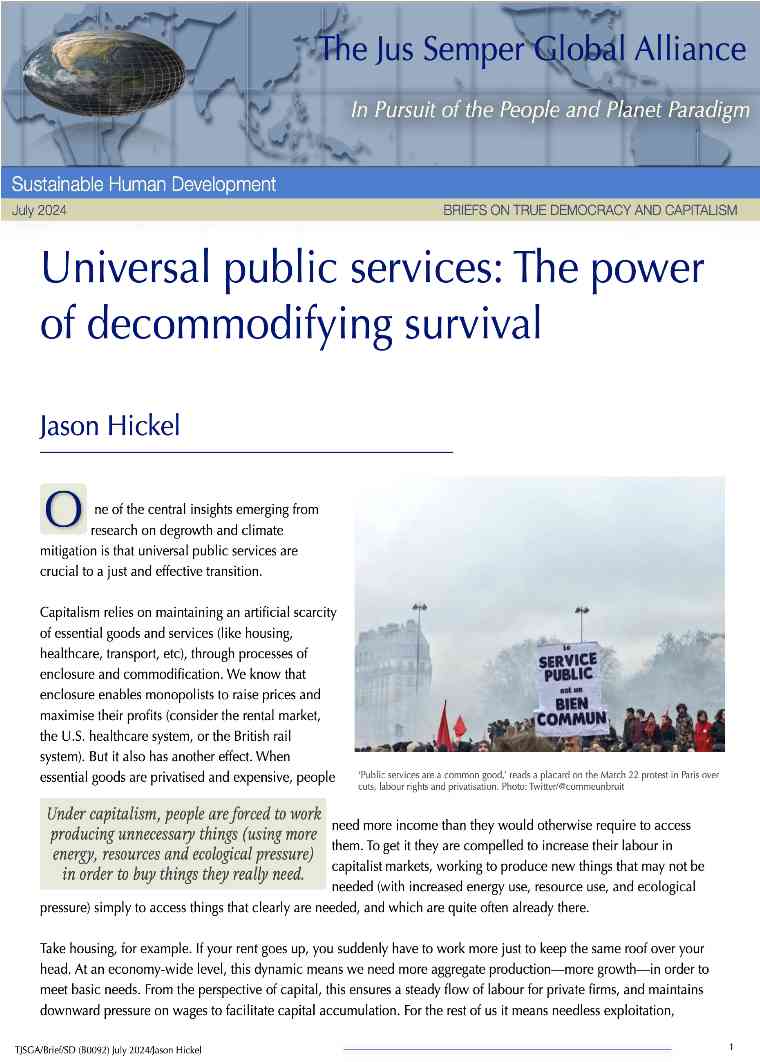Jason Hickel Capitalism relies on maintaining an artificial scarcity of essential goods and services (like housing, healthcare, transport, etc), through processes of enclosure and commodification. We know that enclosure enables monopolists to raise prices and maximise their profits (consider the rental market, the U.S. healthcare system, or the British rail system). But it also has another effect. When essential goods are privatised and expensive, people need more income than they would otherwise require to access them. To get it they are compelled to increase their labour in capitalist markets, working to produce new things that may not be needed (with increased energy use, resource use, and ecological pressure) simply to access things that clearly are needed, and which are quite often already there. We know from empirical studies that public services are a powerful driver of improvements in life expectancy, well-being, and other key social indicators (here, here and here). Universal services would also end the current cost-of-living crisis, by directly reducing the cost of living. For a full read of this essay, click here or on the picture to download the pdf file.
|

- © The Jus Semper Global Alliance
| Home |  | Resources |  | Economic Data |  | Universal public services: The power of decommodifying survival |


